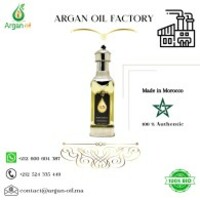Argan Oil Factory
Product Quick Detail
- FOB Price
- USD $7.00 / Piece
- Minimum Order
- 1
- Place Of Origin
- Maroc
- Packaging
- N/A
- Delivery
- 15 Days
Specifications
Argan Oil Factory Argan Oil Factory: A Journey Through Morocco\'s Modern Argan Oil Factories Introduction Derived from the indigenous Moroccan Argania Spinosa tree, argan oil is a valuable and sought-after natural elixir, often referred to as \"liquid gold.\" Its versatility permits its use in various applications, including beauty and culinary industries. The emergence of modern argan oil factories in Morocco has helped to meet the increasing demand for this precious oil. In this article, we will examine the production of argan oil and its importance to local communities and the global market. Traditional versus Modern Production Methods Historically, argan oil production required local Berber women to manually harvest, dry, and press the kernels to extract the oil, making it a labor-intensive process. Nevertheless, the increasing demand for argan oil has spurred the development of modern production facilities. These facilities are equipped with advanced machinery that simplifies the extraction process, all while ensuring the oil\'s quality and authenticity are preserved. The Production Process in Modern Argan Oil Factories Modern argan oil factories employ a meticulous and hygienic production process to guarantee the highest quality oil. This process comprises four steps: Firstly, during the harvesting season from May to August, workers collect the fallen argan fruits from the Argania Spinosa trees. Next, the fruits are sun-dried, and the outer pulp is removed to obtain the argan nuts. After that, specialized machines are used to crack the hard shells of the argan nuts to extract the kernels. Finally, the kernels are cold-pressed to extract the oil, preserving its nutrients and properties. The unroasted kernels produce cosmetic argan oil, while the roasted kernels yield culinary argan oil. The Role of Women\'s Cooperatives Argan oil factories in Morocco often collaborate with women\'s cooperatives to create job opportunities and support the local community. These cooperatives aim to safeguard traditional knowledge and skills while promoting equitable wages and safe working environments for women engaged in argan oil production. By working hand in hand with these cooperatives, argan oil factories help to preserve the cultural heritage and economic well-being of the communities they serve. Sustainability and Eco-Friendly Practice Argan oil factories have prioritized sustainable and eco-friendly practices. They responsibly source argan fruits, adhere to organic standards, and minimize waste during production. Moreover, these factories are actively involved in reforestation efforts aimed at preserving and expanding the Argania Spinosa forests, which are recognized as a UNESCO Biosphere Reserve. By adopting these sustainable practices, argan oil factories demonstrate their commitment to safeguarding the environment and the livelihoods of the communities they work with.
- Country: Morocco
- Business Type: Manufacturer
- Market: Americas,Africa,Asia,Middle East
- Founded Year: 2010
- Address: N°200 Lot Elmassar,Sidi Ghanem Industrial Estate
- Contact: Argan oil morocco






